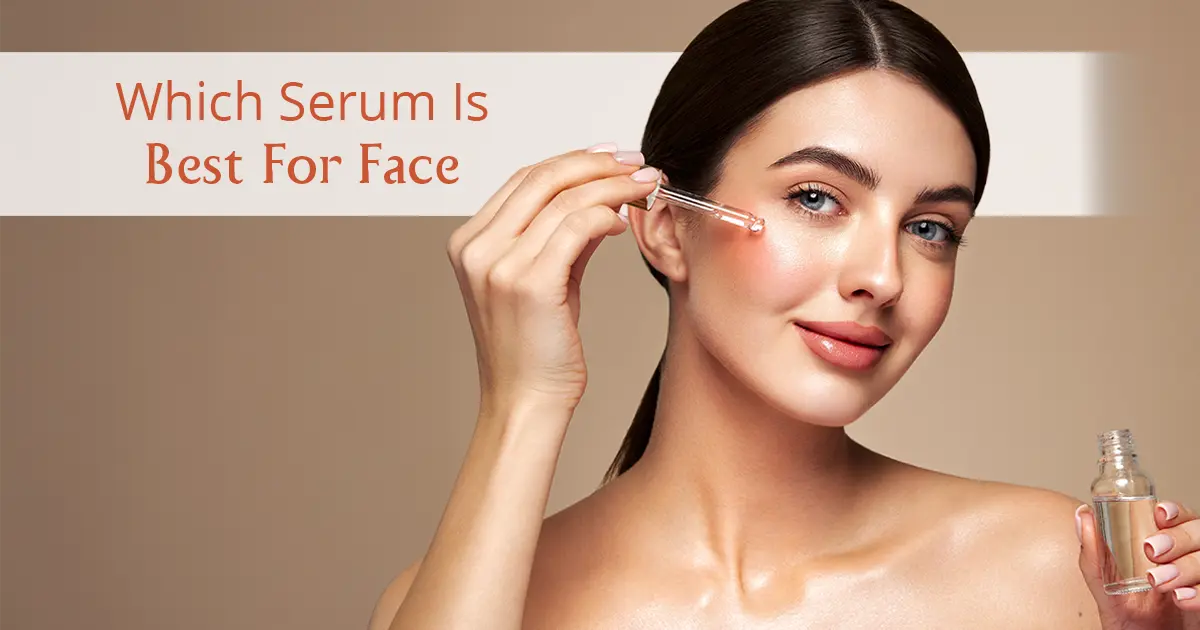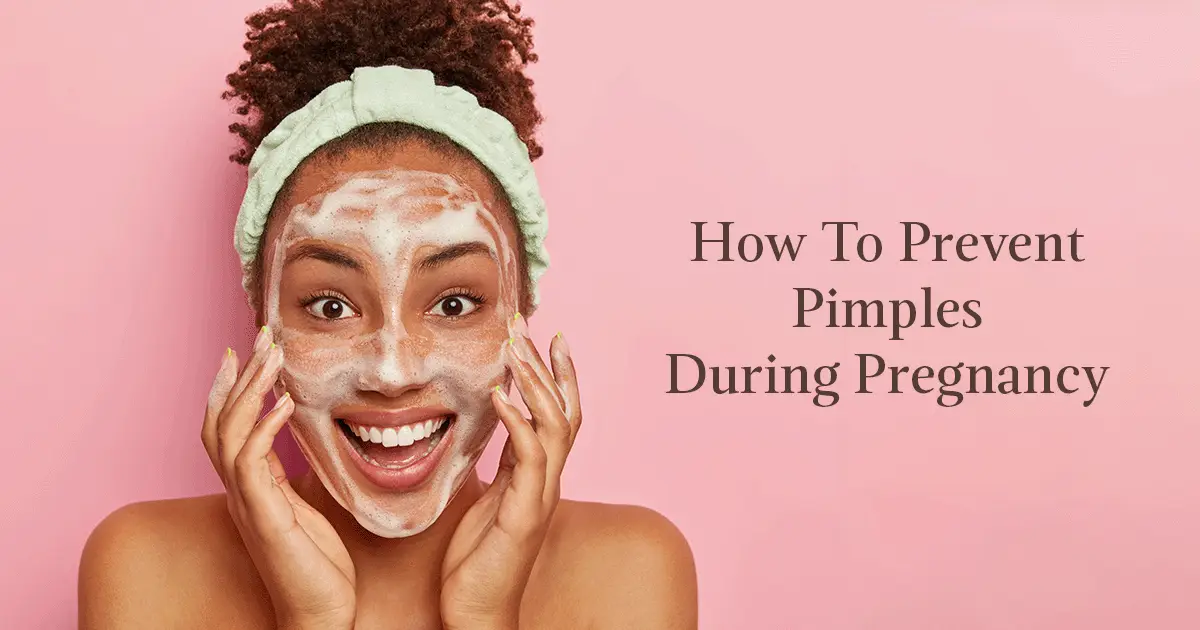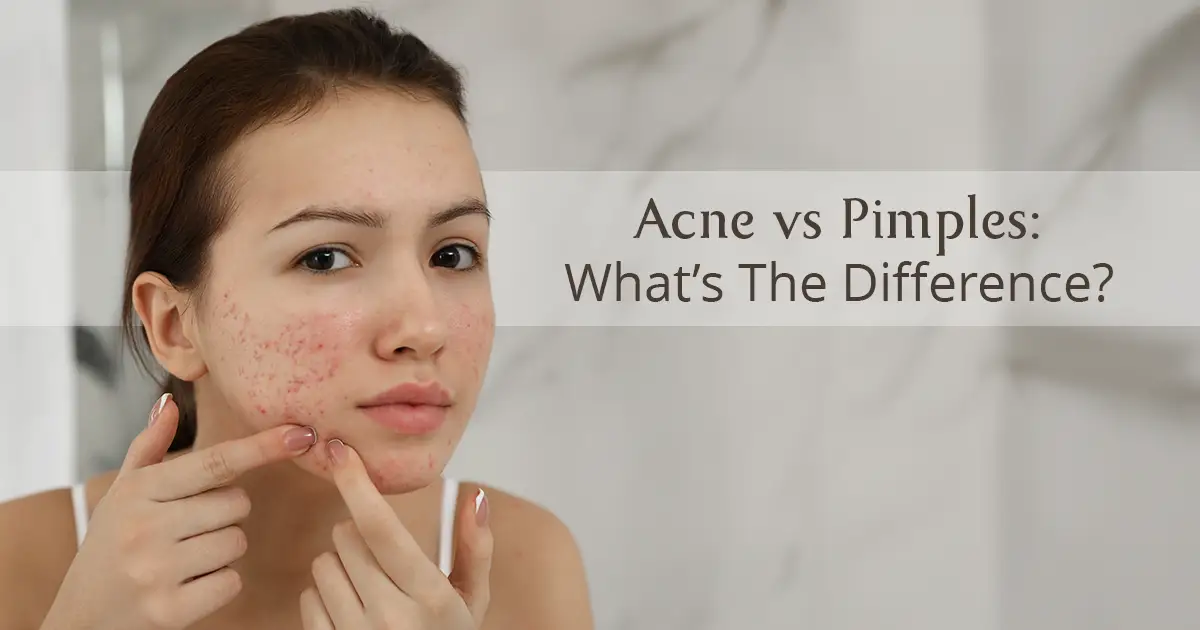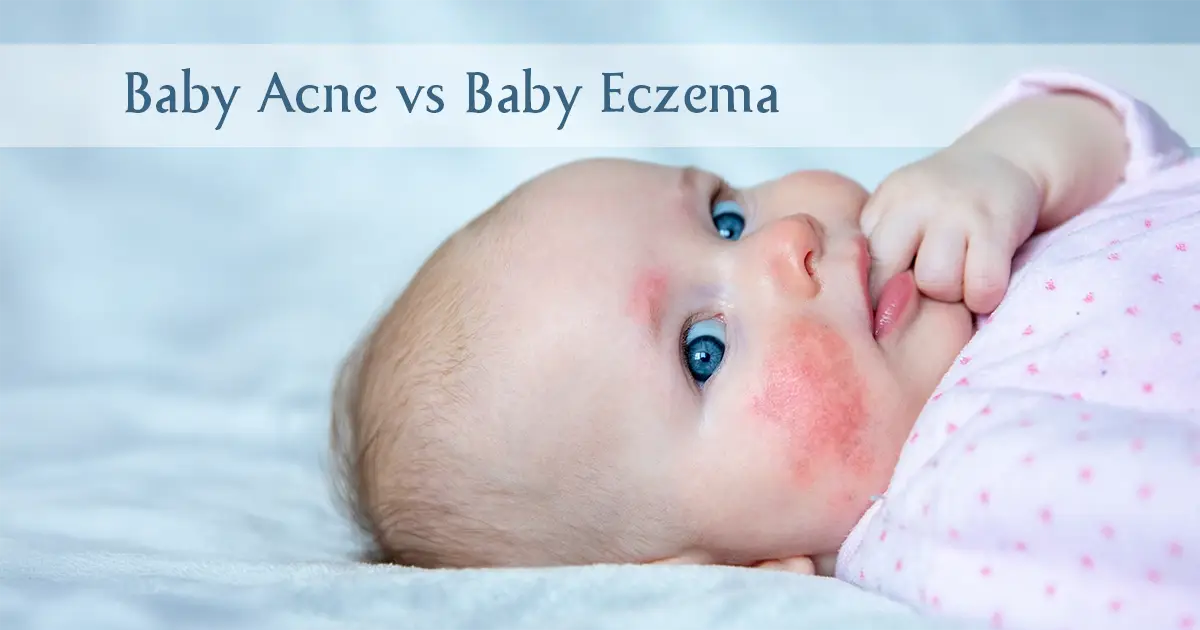
Day by day, skincare is evolving with a wide range of lotions, creams, and products that promise effective benefits for your skin. One such advanced formulation is the face serum.
With so many serums and skincare products available, choosing the right serum can be quite daunting amidst all the crowded options. In this blog, we’ll explore which serum is best for different skin types, dive into the various types of face serums, and break down the key ingredients commonly used in these formulations to help you make an informed choice.
Post Contents
[hide]
What is Face Serums?
Face serums are modern skincare formulations known for their high skin penetration and excellent permeability. They deliver active ingredients deep into the skin, resulting in noticeable effects within a short period.1
These facial serums are highly concentrated, lightweight, and fast-absorbing, making them a powerful addition to any skincare routine.
Depending on their base, facial serums are classified into two main types:
- Water-Based Serums
- Oil-Based Serums
Water-Based Serums:
Facial serums are specially formulated skincare products designed to target specific concerns such as aging, acne, dehydration, and sun damage. One common category of these serums is water-based serums, which typically use water or Aloe vera as their base.1
Why Water-Based Serums?
These serums are especially effective for:
- UV-damaged or unhealthy skin
- Dehydrated or freckled skin
- Acne-prone skin
Water-based serums are often preferred over oil-based ones in humid and warm climates as they help control excess oil. However, they're also beneficial in cold climates, where they hydrate dry and flaky skin without feeling greasy.
Key Ingredients to look for in Water Based Serums:
- Hyaluronic Acid:
Known for its powerful hydrating properties, it binds water to the skin and helps plump up fine lines. - Vitamin C:
An antioxidant that helps repair sun damage, reduce hyperpigmentation, and brighten the skin. - Rutin (an antioxidant):
Found in specific formulations like the rutin-based facial serum OF7, it provides a quick anti-ageing effect and promotes youthful, radiant skin.1
Oil Based Serums:
Oil-based serums are luxurious, emollient-rich skincare products specifically formulated for dry, rough, or scaly skin (also referred to as scabrous skin). Their deeply nourishing nature makes them ideal for restoring moisture, reinforcing the skin’s protective barrier, and shielding the skin from environmental stressors.1
While oil-based serums are especially beneficial for dry skin, they are also suitable for all skin types when used in moderation. Their soothing and anti-inflammatory properties make them helpful in managing specific skin concerns such as eczema, dermatitis, and acne-prone skin.1
How & When to Apply Serum on Face?
Serums can be applied both:
- In the morning, before sunscreen, to offer protection throughout the day
- At night, as an intensive hydrating treatment that supports overnight skin repair
They effectively guard the skin against:
- UV radiation
- Airborne pollutants
- Dry or extreme weather conditions
How to Apply Serum the Right Way
- Wash your face with a gentle facial cleanser or scrub. Rinse well and pat dry with a clean towel.
- Take 3–5 drops of serum and rub them between your palms to activate the ingredients.
- Press the serum onto your face and neck using soft, upward strokes.
- Use your fingertips to tap in circular motions, helping the serum absorb fully into the skin.
- Once the serum dries, apply a dime-sized amount of moisturizer to lock in hydration.
Types Of Facial Serums
Choosing the right serum largely depends on your skin's specific needs and the ingredients used. Let’s explore the different types of facial serums to help you make the best choice.
Anti-Ageing Facial Serums:
Anti-ageing serums are packed with powerful ingredients that work together (or individually) to tackle common signs of skin aging like wrinkles, fine lines, sagging, and uneven skin tone. These serums are typically used at night when the skin enters repair mode, making them even more effective.1
10 Ingredients to Look For in Anti Ageing Serums:
- Retinol (Vitamin A)
- Vitamin C & Vitamin E
- Antioxidant-Rich Extracts
- Peptides (SNAP-8, Palmitoyl peptides)
- Growth Factors (like kinetin)
- Alpha Hydroxy Acids (AHA) & Glycolic Acid
- Hyaluronic Acid (HA)
- Niacinamide + Kinetin Combo
- Salicin
- Bakuchiol
How Effective Are These Serums?
Visible improvements in wrinkles, fine lines, elasticity, hydration, and skin tone have been observed with most products within 4 to 12 weeks of use. Some studies even report noticeable results in as little as 28 days. Nighttime application of these serums is often more effective, as the skin heals and regenerates better during sleep. Clinical studies have confirmed that these serums can restore a youthful appearance and effectively treat photoaging, which is the damage caused by sun exposure.1
Facial brightening and lightening serums:
Hyperpigmentation, characterised by dark spots or patches on the skin, is a common concern that can be caused by several factors.1
- Skin conditions such as acne, eczema, psoriasis, and rosacea can lead to areas of increased pigmentation as the skin heals.
- Certain medications, like minocycline or antipsychotics, may also have side effects that result in darkened skin.
- Sun exposure, particularly from UV radiation, is another significant cause of hyperpigmentation, as it triggers the production of excess melanin.
- Hormonal disorders, such as Addison’s disease, and common pigmentation conditions like melasma, are also known to contribute to the development of dark spots.1
What Ingredients Help?
Facial serums designed for brightening and lightening the skin typically contain potent active ingredients that target various aspects of pigmentation.1
- These serums work by reducing melanin production, which helps to prevent the formation of dark spots.
- They also inhibit tyrosinase, an enzyme responsible for producing pigment, further minimising discolouration.
- In addition to preventing new spots, these serums help fade existing dark spots and promote skin renewal, resulting in a brighter, more even complexion over time.
Ingredients to Look for In Brightening Serums
Key ingredients in facial serums for brightening and lightening the skin include a variety of powerful compounds that work synergistically to reduce pigmentation and improve skin health..1
Antioxidants such as glutathione, Vitamin C (ascorbic acid), and Vitamin E help combat oxidative stress, while ferulic acid boosts the effectiveness of Vitamins C and E. Resveratrol and its derivatives are also vital, as they help fight pigmentation and offer protection from sun damage.
Skin brighteners like niacinamide (Vitamin B3) are known to reduce dark spots and strengthen the skin's barrier. Kojic acid and azelaic acid inhibit pigment production, while natural ingredients like cysteamine, ellagic acid, and licorice extract are natural pigment reducers.
Exfoliants, such as Alpha- and Beta-Hydroxy Acids (AHAs & BHAs), gently exfoliate the skin to reveal a brighter complexion, while glycolic acid enhances the penetration of other active ingredients.
Prescription-level agents like hydroquinone (2–4%) are strong melanin inhibitors and are often paired with glycolic acid or retinoids to enhance their effects. Triple combination creams, which combine hydroquinone, retinoic acid, and fluocinolone, are FDA-approved for treating melasma.
Benefits of Brightening Serums
With regular use, brightening and lightening serums can provide a range of impressive benefits for the skin.1
- They help fade dark spots and sun spots, gradually improving the skin's overall brightness and reducing the appearance of melasma and uneven skin tone.
- These serums also enhance hydration and elasticity, promoting a smoother, more supple complexion.
- Over time, they give the skin a natural glow and more even texture, leaving the skin looking healthier and more radiant.
Anti Acne Serum:
Anti-acne serums are concentrated treatments formulated with potent ingredients that penetrate deep into the skin to target acne at its source. These serums are specifically designed to unclog pores and exfoliate dead skin cells, helping to prevent breakouts before they start. They also regulate excess sebum production, which is a major contributor to acne. Additionally, anti-acne serums contain antibacterial agents that fight acne-causing bacteria, while anti-inflammatory ingredients work to reduce redness and swelling. Over time, they also help minimise post-acne scarring and pigmentation, promoting clearer, smoother skin.1
Ingredients to Look for In Serums
Not all anti-acne serums are created equal, and choosing the right formulation can make a significant difference in your skincare results.1
- Effective serums often contain Beta-Hydroxy Acids (BHAs) like salicylic acid, which penetrate deep into the pores to dissolve oil and debris.
- Poly-Hydroxy Acids (PHAs) offer gentle exfoliation while also hydrating the skin, making them suitable for sensitive types.
- Benzoyl peroxide is a well-known acne-fighter that kills acne-causing bacteria and helps reduce breakouts.
- Retinoids, which are derivatives of Vitamin A, accelerate cell turnover and prevent clogged pores.
- Niacinamide plays a dual role by calming inflammation and regulating oil production.
- Natural ingredients like tea tree oil provide antibacterial benefits, while glabridin, derived from Glycyrrhiza glabra (licorice root), soothes the skin and fights acne-causing microbes.
- Extracts such as Angelica dahurica offer plant-based antimicrobial properties, and even unique ingredients like honeybee venom have shown promise in clinical studies for improving mild to moderate acne.
- Together, these components work synergistically to promote clearer, healthier skin Hydrating, moisturizing, and facial repairing serum
Hydrating, moisturizing, and facial repairing serums
Facial repair serums are specialised formulations crafted to restore and deeply hydrate skin that is dry, flaky, or scaly. Unlike basic moisturisers, these serums penetrate deeper layers of the skin to provide intense hydration and nourishment where it's most needed.
- They support the repair of the skin’s natural barrier, helping to protect against further damage and moisture loss.
- With regular use, facial repair serums can significantly improve skin texture and elasticity, making the skin feel smoother and more supple.
- They also help to soften fine lines and wrinkles that are often caused by dryness, while promoting overall skin regeneration for a healthier, revitalised appearance.
Ingredients To Look For In Hydrating Serums
Repair and hydrating serums owe their effectiveness to a combination of powerful, skin-replenishing ingredients.1
- Hyaluronic acid is a standout component known for its ability to attract and retain moisture, giving the skin a plumper, more hydrated appearance while easing dryness.
- Glycerine works alongside it by drawing water into the skin and locking in hydration for longer-lasting effects.
- Vitamin B5 (Panthenol) plays a vital role in soothing irritation and reinforcing the skin barrier, making the skin more resilient to environmental stressors.
- Essential oils, rich in natural fatty acids, provide nourishment and help repair damaged or stressed skin.
- Additionally, amino acids contribute to skin repair and renewal by supporting collagen production and enhancing overall skin strength. Together, these ingredients restore moisture, improve texture, and promote a healthier, more radiant complexion.
Ideal for:
Repair and hydrating serums are ideal for addressing a variety of skin concerns. They are particularly beneficial for dehydrated or scaly skin, delivering much-needed moisture to restore softness and suppleness.1
These serums also help minimise the fine lines and signs of premature ageing that result from chronic dryness, making the skin appear smoother and more youthful.
If your skin looks dull or shows signs of UV damage, these serums can revitalise the complexion and improve overall tone and texture.
Additionally, they are excellent for post-treatment skin recovery, helping to soothe and strengthen the skin after procedures such as chemical peels, laser treatments, or exfoliation therapies.
Our Recommendations: Which Serum is Best for Face?
Finding the right serum starts with understanding your skin type and specific concerns. If you have dry or flaky skin, look for hydrating serums that contain ingredients like hyaluronic acid and vitamin B5. These ingredients draw moisture into the skin and help repair the barrier, leaving your skin soft and supple.
For acne-prone or oily skin, water-based anti-acne serums with salicylic acid, niacinamide, or tea tree oil work best. They help unclog pores, control oil, and reduce breakouts.
If your concern is ageing, choose anti-ageing serums with retinol, vitamin C, and peptides to smooth fine lines and boost collagen production.
For dull or pigmented skin, brightening serums with glutathione, kojic acid, or niacinamide can lighten dark spots and even out your skin tone.
Always consider your climate; water-based serums suit humid conditions, while oil-based serums are ideal for cold or dry weather.
For Moms-to-Be: Choose Pregnancy-Safe Serums
For expecting moms, always avoid harsh actives like retinol or hydroquinone, and choose products that are labelled pregnancy-safe. That’s where AreoVeda comes in. Our serums are made with plant-based, toxin-free formulas, designed specifically for sensitive and hormonal skin during pregnancy. Whether it's dullness, dryness, or pigmentation, AreoVeda’s gentle actives deliver results safely and naturally.
Conclusion:
Choosing the right face serum doesn’t have to be overwhelming. By understanding your skin type and recognising its specific concerns—whether they're dryness, acne, pigmentation, or signs of ageing you can select a serum with targeted ingredients that work in harmony with your skin. Water-based serums are ideal for oily or acne-prone skin, while oil-based options suit dry or damaged skin. Meanwhile, anti-ageing, brightening, acne-fighting, and repairing serums each offer unique benefits based on their active formulations.
When used consistently, the right serum can transform your skincare routine providing visible improvements in hydration, texture, and overall skin health. If you are unsure, always consult a dermatologist.With the right choice, a face serum can become your skin’s best friend on the journey to a radiant, healthier glow.











